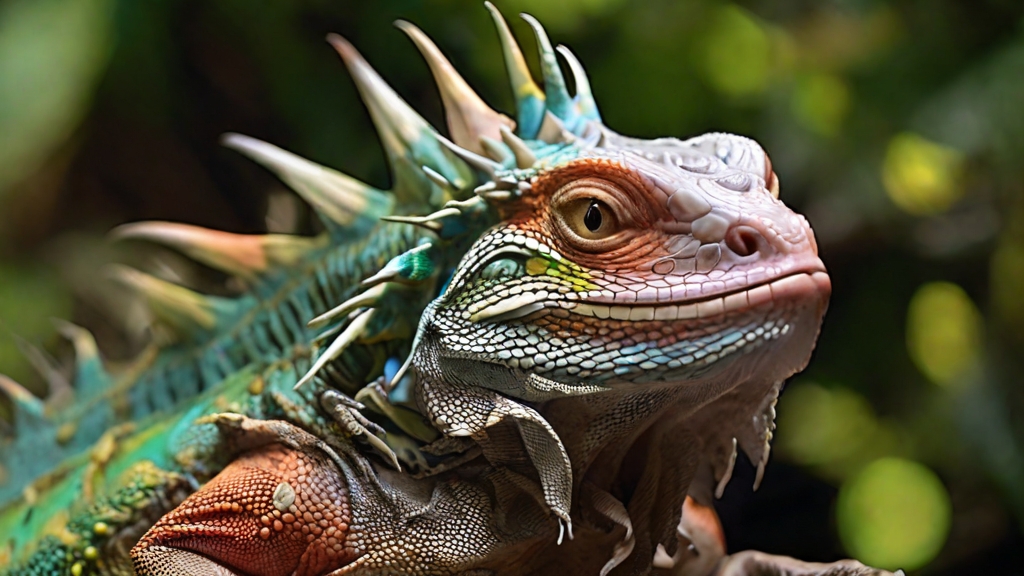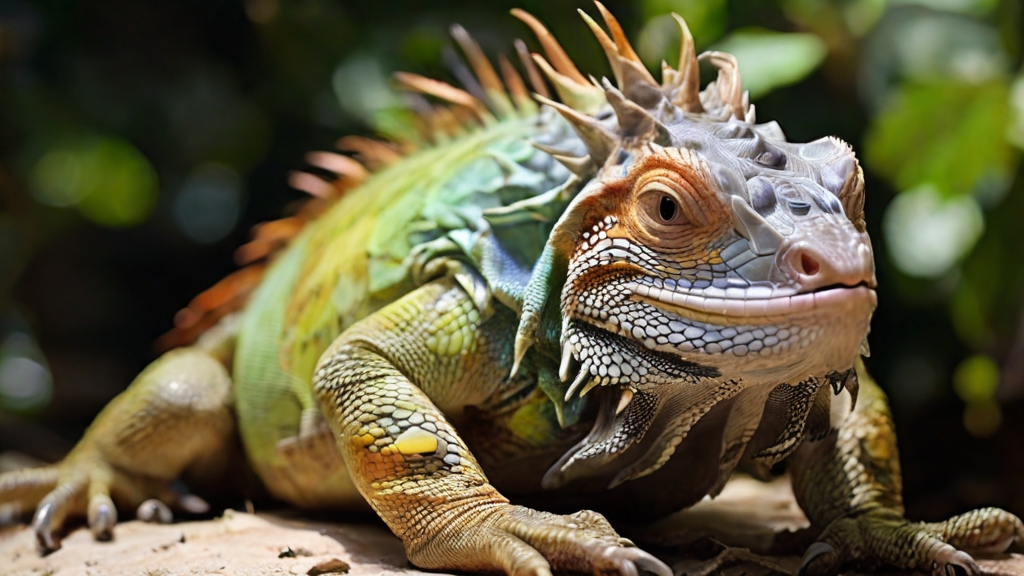When it comes to the diet of an iguana, it is crucial to provide them with a balanced and nutritious meal to support their overall health and well-being. Iguanas are primarily herbivores, meaning that their diet consists mainly of fruits, vegetables, and leafy greens.
However, not all fruits and vegetables are safe for iguanas to consume. One common question that iguana owners often have is whether or not their beloved pets can eat cucumbers.
Understanding the Nutritional Needs of Iguanas
Before determining if cucumbers can be included in an iguana’s diet, it is essential to understand their nutritional needs. Iguanas require a diet that is high in fiber, low in fat, and contains a good balance of vitamins and minerals.
Calcium and vitamin D3 are particularly important for the health of their bones and teeth. Leafy greens like kale and collard greens are excellent sources of these nutrients. However, when it comes to cucumbers, their nutritional value needs to be examined more closely.
Can Iguanas Safely Consume Cucumbers?
Cucumbers can indeed be safely incorporated into an iguana’s diet, but they should not be the sole source of nutrition. While cucumbers are low in calories and fat, they are also low in essential nutrients such as calcium and vitamin D3.
Therefore, it is important to offer cucumbers as a supplement rather than a staple in an iguana’s diet. It is also crucial to prepare and serve cucumbers correctly to ensure optimal consumption and digestion.
Analyzing the Vitamins and Minerals in Cucumbers
Cucumbers are primarily composed of water, which makes them hydrating for iguanas. However, they are relatively low in vitamins and minerals compared to other vegetables. Cucumbers contain some vitamin K, vitamin C, and potassium, which can contribute to an iguana’s overall health.
Nonetheless, it is necessary to provide a variety of other vegetables and leafy greens to ensure that an iguana receives a well-rounded diet with all the necessary nutrients.
Examining the Positive Effects on Iguana’s Well-being
While cucumbers may not offer significant nutritional value for iguanas, they can still provide some health benefits. The high water content in cucumbers can help keep an iguana hydrated, especially during warmer weather.
Additionally, the crunchy texture of cucumbers can serve as a form of enrichment, keeping an iguana mentally stimulated while they eat. However, it is important to note that cucumbers should be offered in moderation and as part of a varied diet to ensure optimal health for your iguana.
Preparing and Serving Cucumbers for Optimal Consumption
To incorporate cucumbers into an iguana’s diet, it is crucial to prepare and serve them correctly. Start by washing the cucumber thoroughly to remove any pesticides or dirt. It is best to peel the cucumber to remove the waxy coating, as it may be difficult for an iguana to digest.
Next, slice the cucumber into small, bite-sized pieces. This will make it easier for your iguana to eat and reduce the risk of choking. Offer the cucumber in addition to a variety of other vegetables and leafy greens to ensure a well-balanced meal for your iguana.
Identifying and Addressing Possible Issues
While cucumbers are generally safe for iguanas, there are a few risks and precautions to consider. For example, feeding an iguana too many cucumbers can lead to diarrhea due to their high-water content. Additionally, if the cucumber is not properly prepared, the waxy coating may cause digestive issues.
It is also important to avoid feeding an iguana pickled or salted cucumbers, as the added ingredients can be harmful to their health. Always monitor your iguana’s response to cucumbers and consult a veterinarian if you notice any unusual symptoms or behaviors.
Exploring Other Suitable Food Options
While cucumbers can be a healthy addition to an iguana’s diet, it is essential to provide a variety of other suitable food options. Leafy greens such as kale, collard greens, and mustard greens are rich in calcium and other essential nutrients.
Other vegetables like bell peppers, carrots, and squash can also be incorporated to offer a diverse range of flavors and textures. Remember to research each food item thoroughly before introducing it to your iguana’s diet and consult a veterinarian for specific recommendations based on your iguana’s individual needs.
Conclusion: Can Iguanas Safely Enjoy Cucumbers?
In conclusion, iguanas can safely enjoy cucumbers as part of a balanced and varied diet. While cucumbers may not offer significant nutritional value, they can provide hydration and mental stimulation for your iguana.
It is important to prepare and serve cucumbers correctly, offer them in moderation, and supplement them with other vegetables and leafy greens to ensure optimal health for your pet. Always monitor your iguana’s response to cucumbers and consult a veterinarian for any concerns or questions regarding their diet.
Final Thoughts and Recommendations
Remember that the health of your iguana relies on a well-balanced diet and proper care. Along with offering suitable food options, ensure your iguana has access to fresh, clean water at all times. Regular veterinary check-ups are also crucial to monitor their overall health and address any potential issues. By providing a nutritious diet, proper hydration, and attentive care, you can ensure that your iguana thrives and lives a long, healthy life.




